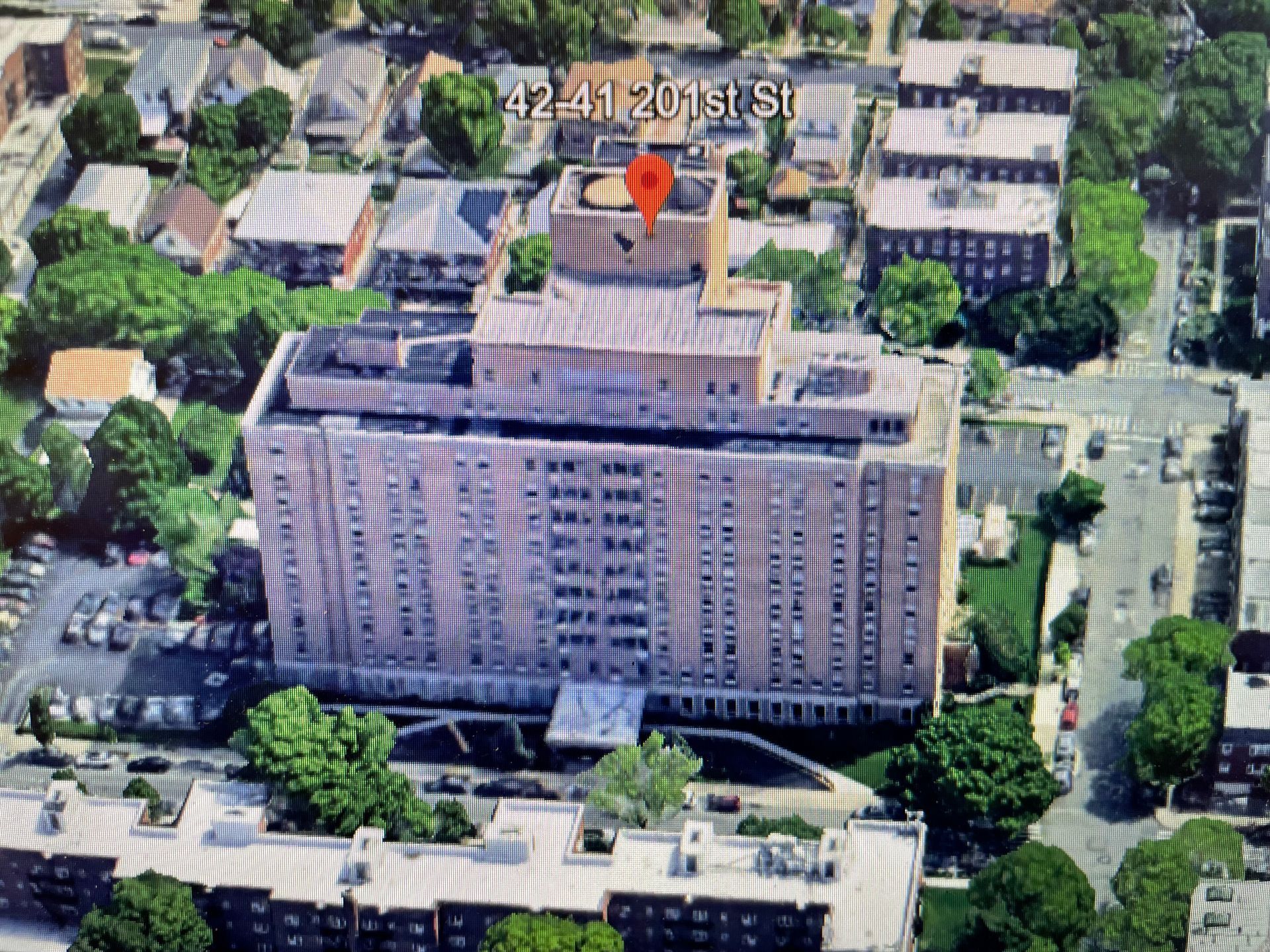100 Causes of Dementia
100 Causes of Dementia
Dementia is a general term used to describe a decline in cognitive function severe enough to interfere with daily life. It primarily affects memory, thinking, language, and problem-solving abilities, often leading to changes in mood, behavior, and the ability to perform everyday activities. While Alzheimer’s disease is the most well-known form of dementia, there are at least 100 different causes, each affecting the brain in unique ways. These causes range from neurodegenerative diseases like vascular dementia and Lewy body dementia, to conditions such as traumatic brain injuries, vitamin deficiencies, infections, and even chronic illnesses like diabetes and thyroid disorders. Each form of dementia has distinct characteristics, which is why identifying the underlying cause is crucial for providing the most effective care and treatment. 7 Day Home Care is licensed by the New York State Department of Health to provide home care services in Manhattan, Queens, Brooklyn, Nassau County, and Suffolk County, New York. To learn more about our home care services, please call 516-408-0034.

Are You Searching for a Home Care Agency Near Me that Specializes in Dementia Care?
Dementia is a broad term that encompasses various brain disorders, each leading to cognitive decline, memory loss, and difficulties with thinking and communication. While Alzheimer’s disease is the most well-known cause, there are numerous other conditions that can lead to dementia. At 7 Day Home Care, we provide specialized dementia care, understanding that each type of dementia requires tailored support. This article explores 100 causes of dementia, highlighting the complexity of the condition and the need for specialized care.
1. Alzheimer’s Disease
Alzheimer’s disease is the leading cause of dementia, accounting for 60-80% of cases. It involves the buildup of amyloid plaques and tau tangles in the brain, resulting in memory loss, confusion, and impaired thinking.
2. Vascular Dementia
Vascular dementia occurs when blood flow to the brain is reduced, often following a stroke or due to small vessel disease. This type of dementia leads to memory loss, confusion, and difficulty with reasoning.
3. Lewy Body Dementia
Lewy body dementia is caused by abnormal protein deposits in the brain, leading to cognitive decline, hallucinations, and motor symptoms similar to Parkinson’s disease.
4. Frontotemporal Dementia
Frontotemporal dementia (FTD) refers to a group of disorders that primarily affect the frontal and temporal lobes of the brain, leading to personality changes, difficulty with language, and behavioral issues.
5. Mixed Dementia
Mixed dementia involves multiple causes, most commonly a combination of Alzheimer’s disease and vascular dementia. This overlap complicates diagnosis and treatment but can contribute to a more severe cognitive decline.
6. Parkinson’s Disease Dementia
Some individuals with Parkinson’s disease experience cognitive decline several years after the onset of motor symptoms, leading to Parkinson’s disease dementia, which affects memory and executive function.
7. Huntington’s Disease
Huntington’s disease is a genetic disorder that leads to the progressive breakdown of nerve cells in the brain, causing movement issues, cognitive decline, and psychiatric symptoms, often resulting in dementia.
8. Creutzfeldt-Jakob Disease (CJD)
CJD is a rare and fatal neurodegenerative disorder caused by prion proteins. It leads to rapid cognitive decline, motor dysfunction, and severe neurological symptoms.
9. Normal Pressure Hydrocephalus (NPH)
NPH occurs when cerebrospinal fluid builds up in the brain’s ventricles, causing difficulty walking, urinary incontinence, and cognitive decline. It is often misdiagnosed as Alzheimer’s or Parkinson’s disease.
10. Wernicke-Korsakoff Syndrome
This condition is caused by a severe deficiency of thiamine (vitamin B1), often due to chronic alcoholism. It results in memory loss, confusion, and difficulty coordinating movements.
11. HIV-Associated Dementia
In advanced stages of HIV, the virus can cause cognitive decline, memory problems, and motor issues, leading to HIV-associated dementia.
12. Chronic Traumatic Encephalopathy (CTE)
CTE is a progressive brain condition linked to repeated head injuries, commonly seen in athletes and military personnel. It leads to memory problems, confusion, aggression, and dementia-like symptoms.
13. Multiple Sclerosis (MS)
MS is an autoimmune disorder that affects the central nervous system. In some cases, it leads to cognitive impairment and dementia due to the damage it causes to nerve fibers.
14. Progressive Supranuclear Palsy (PSP)
PSP is a rare disorder that causes problems with balance, walking, and eye movements. It can also lead to dementia-like symptoms, including memory loss and cognitive decline.
15. Amyotrophic Lateral Sclerosis (ALS)
Also known as Lou Gehrig’s disease, ALS is a neurodegenerative disorder that affects motor neurons. Some individuals with ALS may experience cognitive decline, known as frontotemporal dementia-ALS.
16. Syphilis-Related Dementia
Untreated syphilis can lead to neurosyphilis, a condition that affects the brain and causes memory loss, confusion, and personality changes.
17. Hypothyroidism
An underactive thyroid can cause symptoms of dementia, including memory problems, confusion, and difficulty concentrating. Fortunately, these symptoms are often reversible with treatment.
18. Vitamin B12 Deficiency
A deficiency in vitamin B12 can lead to memory problems, confusion, and difficulty thinking, resembling dementia. Like hypothyroidism, this is often treatable.
19. Brain Tumors
Both benign and malignant brain tumors can press on areas of the brain responsible for memory and cognition, leading to dementia-like symptoms.
20. Lyme Disease
In some cases, untreated Lyme disease can affect the brain and lead to memory problems, confusion, and other cognitive symptoms resembling dementia.
21. Toxic Reactions to Medications
Certain medications, particularly sedatives or anticholinergics, can cause cognitive impairment, confusion, and memory loss, mimicking dementia symptoms.
22. Chronic Alcohol Abuse
Excessive alcohol consumption over a long period can lead to alcohol-related dementia, causing memory problems, confusion, and difficulty with decision-making.
23. Depression-Related Pseudodementia
Severe depression can sometimes mimic dementia, causing memory problems, confusion, and difficulty concentrating. This is known as pseudodementia and is treatable with proper mental health care.
24. Sleep Apnea
Untreated sleep apnea can lead to memory problems, confusion, and difficulty concentrating, resembling dementia. Treating the underlying condition can improve cognitive function.
25. Wilson’s Disease
This rare genetic disorder causes copper to accumulate in the brain, leading to symptoms of dementia, along with movement problems and psychiatric symptoms.
26. Encephalitis
Brain inflammation caused by infection or autoimmune conditions can lead to cognitive decline and dementia-like symptoms.
27. Hypoglycemia
Severe or chronic low blood sugar levels can impair brain function, leading to confusion, memory loss, and cognitive decline.
28. Subdural Hematoma
Bleeding between the brain and its outer covering can cause pressure on the brain, leading to memory problems, confusion, and other dementia-like symptoms.
29. Anoxia
A lack of oxygen to the brain due to heart attack, stroke, or other medical conditions can result in permanent brain damage, leading to cognitive impairment and dementia.
30. Hypercalcemia
Excess calcium in the blood can cause cognitive decline, confusion, and memory problems, often resembling dementia symptoms.
31. Parkinsonism-Related Disorders
Disorders related to Parkinson’s disease, such as multiple system atrophy (MSA) and corticobasal degeneration (CBD), can lead to cognitive decline and dementia-like symptoms.
32. Severe Anxiety Disorders
Chronic and severe anxiety can impair cognitive function, leading to memory problems, confusion, and difficulty concentrating, resembling dementia.
33. Hypoxia
A lack of oxygen in the brain can result in significant brain damage and cognitive impairment, resembling dementia.
34. Hyperthyroidism
An overactive thyroid can cause symptoms like confusion, memory issues, and difficulty concentrating, similar to dementia.
35. Huntington’s Disease
This inherited condition leads to the progressive breakdown of nerve cells in the brain, causing cognitive decline, personality changes, and movement problems.
36. Pick’s Disease
A rare form of frontotemporal dementia, Pick's disease affects specific areas of the brain, leading to personality changes, language difficulties, and memory loss.
37. Wilson’s Disease
This rare inherited disorder causes excessive copper buildup in the body, particularly in the brain, resulting in cognitive decline, tremors, and movement disorders.
38. Brain Aneurysms
Ruptured brain aneurysms can cause sudden cognitive impairment, memory problems, and confusion, mimicking dementia.
39. Prion Diseases
Diseases like Creutzfeldt-Jakob disease (CJD) are caused by infectious proteins called prions that attack the brain, leading to rapidly progressing dementia.
40. Neurosyphilis
A late-stage complication of untreated syphilis, neurosyphilis can lead to severe cognitive impairment and other neurological symptoms.
41. Toxic Encephalopathy
Exposure to certain toxins (like heavy metals or chemicals) can damage brain function, leading to symptoms of dementia.
42. Vitamin D Deficiency
Low levels of vitamin D have been linked to cognitive decline and an increased risk of developing dementia, particularly in older adults.
43. Meningitis
This infection of the brain’s lining can cause inflammation and lead to cognitive decline, confusion, and memory problems, similar to dementia.
44. Herpes Simplex Virus Encephalitis
In rare cases, the herpes simplex virus can cause brain inflammation, leading to memory problems, confusion, and cognitive decline.
45. Sarcoidosis
A chronic inflammatory disease that can affect multiple organs, including the brain, sarcoidosis may lead to cognitive impairment and symptoms resembling dementia.
46. Brain Trauma
Severe head injuries can result in permanent cognitive decline and memory loss, often mimicking symptoms of dementia.
47. Toxoplasmosis
This parasitic infection can cause neurological damage in people with weakened immune systems, leading to dementia-like symptoms.
48. Radiation Therapy
Radiation to the brain can damage neurons and lead to cognitive decline, memory issues, and confusion, resembling dementia.
49. Chronic Kidney Disease
Advanced kidney disease can cause an accumulation of toxins in the brain, leading to cognitive decline and memory problems.
50. Chronic Liver Disease
Liver disease can result in hepatic encephalopathy, a condition in which toxins build up in the brain, causing confusion, memory problems, and cognitive decline.
51. Chronic Obstructive Pulmonary Disease (COPD)
In advanced stages, COPD can reduce oxygen flow to the brain, leading to cognitive impairment and memory problems.
52. Postoperative Cognitive Dysfunction
In some cases, patients experience cognitive decline and memory loss after undergoing major surgery, particularly if anesthesia was involved.
53. Polypharmacy
Taking multiple medications, particularly in older adults, can lead to cognitive impairment due to drug interactions or side effects, mimicking dementia symptoms.
54. Celiac Disease
Untreated celiac disease can lead to neurological damage, resulting in cognitive decline and memory issues.
55. Sleep Disorders
Chronic sleep disorders like insomnia or sleep apnea can impair brain function, leading to cognitive decline and symptoms that mimic dementia.
56. Fibromyalgia
In some individuals, fibromyalgia can lead to “fibro fog,” a condition characterized by memory problems and confusion, mimicking dementia.
57. Lupus
This autoimmune disease can cause inflammation in the brain, leading to cognitive decline and memory issues similar to dementia.
58. Sjogren’s Syndrome
This autoimmune disorder primarily affects moisture-producing glands but can also lead to cognitive impairment and memory loss.
59. Epilepsy
Chronic epilepsy, particularly in older adults, can cause cognitive impairment and memory problems, often resembling dementia.
60. Transient Ischemic Attacks (TIAs)
Also known as mini-strokes, TIAs can lead to temporary cognitive impairment, confusion, and memory loss, which may accumulate and mimic dementia.
61. Hypernatremia
Excess sodium levels in the blood can cause confusion, agitation, and cognitive decline, resembling dementia.
62. Hypocalcemia
Low calcium levels can lead to memory problems, confusion, and cognitive decline, mimicking symptoms of dementia.
63. Tay-Sachs Disease
A rare genetic disorder, Tay-Sachs can lead to severe cognitive impairment and developmental delays, especially in children.
64. Rett Syndrome
A rare genetic disorder affecting mainly females, Rett syndrome can cause severe cognitive impairment, movement issues, and speech loss.
65. Neurofibromatosis
This genetic disorder causes the growth of noncancerous tumors in the brain and nerves, leading to cognitive decline and memory problems.
66. Cardiac Arrest
Severe oxygen deprivation during a cardiac arrest can lead to brain damage, resulting in cognitive impairment and memory loss.
67. End-Stage Renal Disease (ESRD)
Cognitive decline can occur in individuals with ESRD due to the buildup of toxins in the bloodstream, leading to dementia-like symptoms.
68. Primary Progressive Aphasia
A type of frontotemporal dementia, this condition primarily affects language abilities, leading to difficulties with speaking and understanding, eventually causing cognitive decline.
69. Corticobasal Degeneration
This rare neurodegenerative disease causes both movement and cognitive problems, including memory loss and difficulty thinking, resembling dementia.
70. Multiple System Atrophy (MSA)
A progressive neurodegenerative disorder, MSA affects movement and can also lead to cognitive decline, similar to Parkinson’s disease dementia.
71. Heat Stroke
Severe heat stroke can cause brain damage and lead to cognitive impairment and memory problems, mimicking dementia.
72. Chronic Pain
Long-term chronic pain can impair cognitive function, leading to memory problems and confusion, similar to dementia symptoms.
73. Huntington’s Disease-Like Syndrome
There are conditions with symptoms similar to Huntington’s disease that can also cause cognitive decline and dementia-like symptoms.
74. Down Syndrome
Individuals with Down syndrome are at a higher risk of developing Alzheimer’s disease as they age, often leading to early-onset dementia.
75. Friedreich’s Ataxia
A rare inherited disorder that affects the nervous system and leads to movement and cognitive problems, including dementia.
76. Olivopontocerebellar Atrophy
This neurodegenerative condition affects the cerebellum and brainstem, leading to cognitive decline and movement issues, similar to dementia.
77. Spinocerebellar Ataxia
A group of genetic disorders that cause progressive problems with movement and coordination, as well as cognitive decline and dementia-like symptoms.
78. Neuroleptic Malignant Syndrome
This rare but serious reaction to antipsychotic medications can lead to severe cognitive impairment, confusion, and memory loss.
79. Hashimoto’s Encephalopathy
A rare condition linked to Hashimoto’s thyroiditis, causing cognitive decline, memory loss, and confusion.
80. Paraneoplastic Syndromes
Some cancers can trigger immune responses that attack the brain, leading to cognitive impairment and dementia-like symptoms.
81. Hyperviscosity Syndrome
In conditions where blood becomes too thick, such as certain cancers, reduced blood flow to the brain can lead to cognitive decline.
82. Septic Encephalopathy
In severe infections, the brain may become inflamed, causing confusion, memory loss, and other cognitive impairments, mimicking dementia.
83. Tardive Dyskinesia
A side effect of certain medications that can impair brain function and lead to cognitive decline.
84. Chronic Fatigue Syndrome
In some individuals, chronic fatigue syndrome can lead to cognitive impairment and memory problems, resembling dementia.
85. Lead Poisoning
Chronic exposure to lead can cause permanent brain damage, leading to cognitive decline and memory problems.
86. Mercury Poisoning
Mercury toxicity can lead to neurological damage, resulting in cognitive impairment and symptoms similar to dementia.
87. Carbon Monoxide Poisoning
Prolonged or severe carbon monoxide poisoning can cause brain damage, leading to cognitive impairment and dementia-like symptoms.
88. Hypomagnesemia
Low magnesium levels can lead to confusion, cognitive decline, and memory problems, resembling dementia.
89. Sjögren’s Syndrome
An autoimmune disorder that can cause brain inflammation, leading to cognitive impairment and memory issues.
90. Severe Dehydration
Prolonged dehydration can lead to confusion, cognitive decline, and memory problems, mimicking dementia.
91. Oxygen Toxicity
Too much oxygen, particularly in medical settings, can damage brain tissue, leading to cognitive impairment and dementia-like symptoms.
92. Ehlers-Danlos Syndrome
Some individuals with this genetic disorder may experience cognitive problems due to issues with blood flow and brain function.
93. Fabry Disease
A rare genetic disorder affecting lipid metabolism that can lead to cognitive decline and dementia-like symptoms.
94. Batten Disease
A rare genetic disorder that causes progressive neurological decline, leading to dementia, particularly in children.
95. Mitochondrial Disease
Mitochondrial disorders can impair brain function, leading to cognitive decline and memory problems.
96. Lafora Disease
A rare genetic condition that causes seizures, cognitive decline, and dementia, typically beginning in childhood or adolescence.
97. Hypo/Hyperparathyroidism
Imbalances in parathyroid hormone levels can affect brain function, leading to cognitive impairment and memory problems.
98. Stroke
Major strokes or multiple small strokes can lead to vascular dementia, causing memory loss and cognitive impairment.
99. Pellagra
Caused by a severe niacin (vitamin B3) deficiency, pellagra can result in memory loss, confusion, and cognitive decline.
100. Gluten Ataxia
This condition results from gluten sensitivity and can affect the cerebellum, leading to cognitive decline and symptoms similar to dementia.
Why Choosing the Right Dementia Care Matters As demonstrated by the diverse causes of dementia, it’s clear that dementia care must be highly personalized. At 7 Day Home Care, we specialize in dementia care with trained caregivers who understand the complexity of these conditions. Whether your loved one is dealing with Alzheimer’s disease, vascular dementia, or another form of dementia, we offer compassionate, expert support to help maintain their quality of life. Early intervention and tailored care can make a significant difference in managing symptoms and ensuring the best possible outcomes.
To learn more about our dementia care services in New York, including Manhattan, Queens, Brooklyn, and Long Island, contact 7 Day Home Care today at 516-408-0034. Let us help you navigate the challenges of dementia with the care and compassion your family deserves.
Brian Callahan
7 Day Home Care

Living With Parkinson’s Disease: How In-Home Care Helps Seniors Stay Safe, Independent & Comfortable









